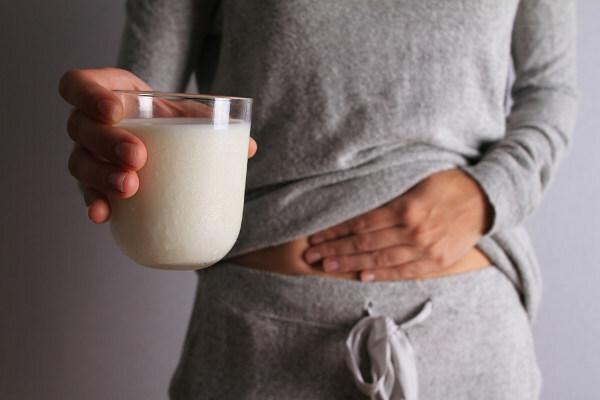gases(flatulence) is a popular term used to refer to the elimination of intestinal gas through the anus. Gas is a natural process of the organism and can occur due to the fermentation of some foods in the intestine, as well as a consequence of the act of “swallowing air”.
To reduce the occurrence of these gases, it is necessary to pay extra attention to the diet, avoiding foods that are known to cause gas and taking measures such as chewing well and avoiding talking during meals meals. Some health conditions can promote increased gas, such as irritable bowel syndrome and lactose intolerance. It is important to see a doctor whenever gas is accompanied by symptoms such as diarrhea, blood in the stool, nausea and vomiting.
Read too: Digestive system - what are the organs in our body that process food?
Topics of this article
- 1 - Summary about gases (flatulence)
- 2 - What are gases?
- 3 - How are intestinal gases produced?
- 4 - What foods increase the production of intestinal gas?
- 5 - Can excess gas be a symptom of disease?
- 6 - How to reduce the production of gases?
Summary on gas (flatulence)
Gas (flatulence) can cause discomfort and embarrassment and consists of the passage of intestinal gas through the anus.
A person can pass gas up to 20 times during the day.
Excessive increase in gas can indicate health problems, such as food intolerances.
Intestinal gas is formed by the fermentation of food and gas that has been swallowed.
To reduce the elimination of gases, it is recommended to take care of your diet, practice physical activity and chew your food well.
What are gases?
Also called flatulence, gases are nothing more than intestinal gas sbeing expelled through the anus. These gases can be eliminated spontaneously or not and cause a lot of discomfort and even social embarrassment. Flatulence is a normal process of our body, and an individual can eliminate from ten to 20 flatus daily.
Do not stop now... There's more after the publicity ;)
How is intestinal gas produced?
Intestinal gas can have different causes, one of which is the digestion process itself. In those cases, they formed when food ferments, with some components of our diet responsible for producing more gases than others. Furthermore, the air swallowed during our feeding It can also be eliminated via the anal route. It is worth noting that this swallowed air can also be eliminated through the mouth, in a process called eructation or belching.
See too:Food Pyramid — How to Maintain a Balanced and Nutritious Diet
What foods increase the production of intestinal gas?
According to the Brazilian Society of Digestive Motility and Neurogastroenterology, some foods are related to increased flatulence, such as legumes (beans, chickpeas, lentils); cruciferous vegetables (cabbage, cauliflower, broccoli, artichokes); lactose, which is milk sugar; starch (potatoes, cereals, wheat); sorbitol and fructose, which are carbohydrates naturally contained in various foods and often used as sweeteners in industrialized products; fiber, which are non-digestible carbohydrates and can also be fermented by intestinal bacteria.
Can excess gas be a symptom of disease?
Although flatulence is a normal process observed in our body, some situations can cause increased gas to occur. Among the health problems related to increased gas, we can quote:
parasites;
syndrome irritable bowel;
lactose intolerance;
gluten intolerance;
celiac disease;
chronic constipation.

It is important for the individual to be aware of the abnormal increase in these gases and see a doctor whenever they are accompanied by warning signs such as diarrhea, fever, bleeding in the stool, fat in the stool, weight loss, and nausea or vomiting.
How to reduce gas production?
To control excess gases, some important measures can be taken, such as:
adopt a healthy diet and avoiding foods known to increase gas production;
perform physical activities;
increase fluid intake;
eat calmly, chew food well and avoid talking during meals;
see a doctor to assess whether the excess gas is not related to a health problem.
By Vanessa Sardinha dos Santos
Biology teacher
Would you like to reference this text in a school or academic work? Look:
SANTOS, Vanessa Sardinha dos. "Gas (flatulence)"; Brazil School. Available in: https://brasilescola.uol.com.br/curiosidades/gases-flatulencia.htm. Accessed on April 19, 2023.
Do you know what it's like to have a healthy diet? Click here and find out what healthy eating is, its benefits and tips to achieve this goal.
The explanation for the term contains gluten being present in various foods.
Learn more about celiac disease, the disease whose food consumed by its bearer cannot contain gluten.
Understand what lactose intolerance is, and how to treat it.
Learn about lactose intolerance, a condition triggered by lactase inefficiency.
Understand what the food pyramid is, how foods are arranged in this representation and how it can help in choosing foods.
Learn more about the digestive system here! Learn about the organs and glands that make up this system, as well as their roles in the digestion process.

